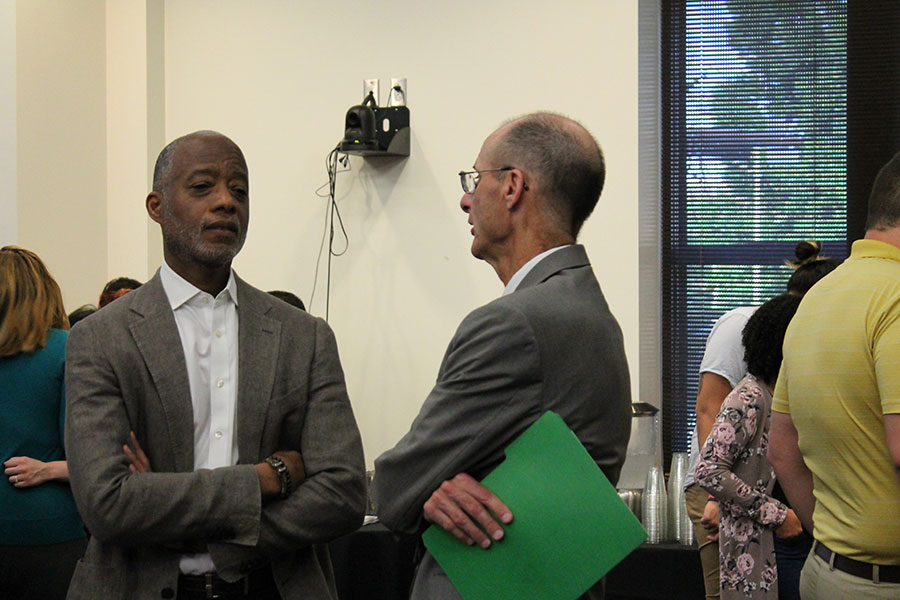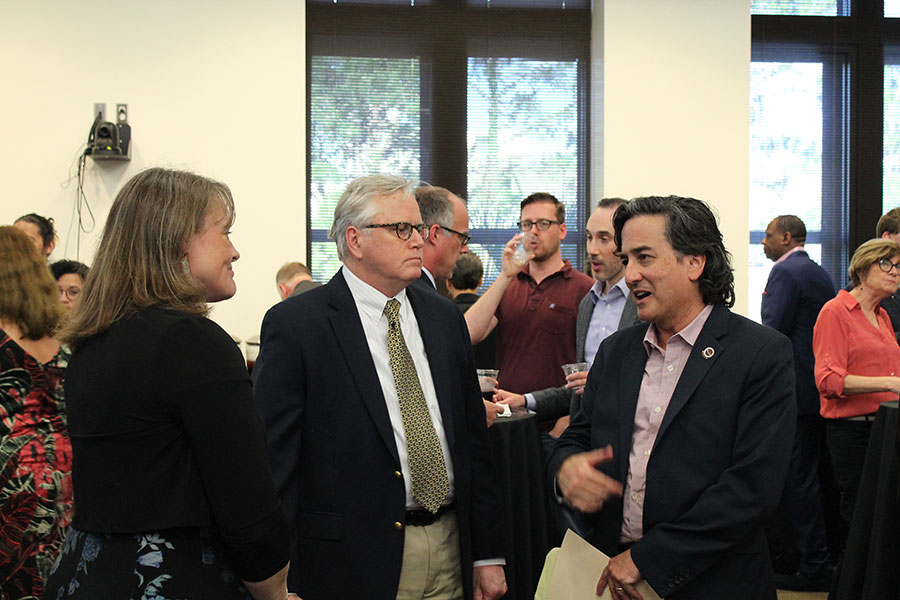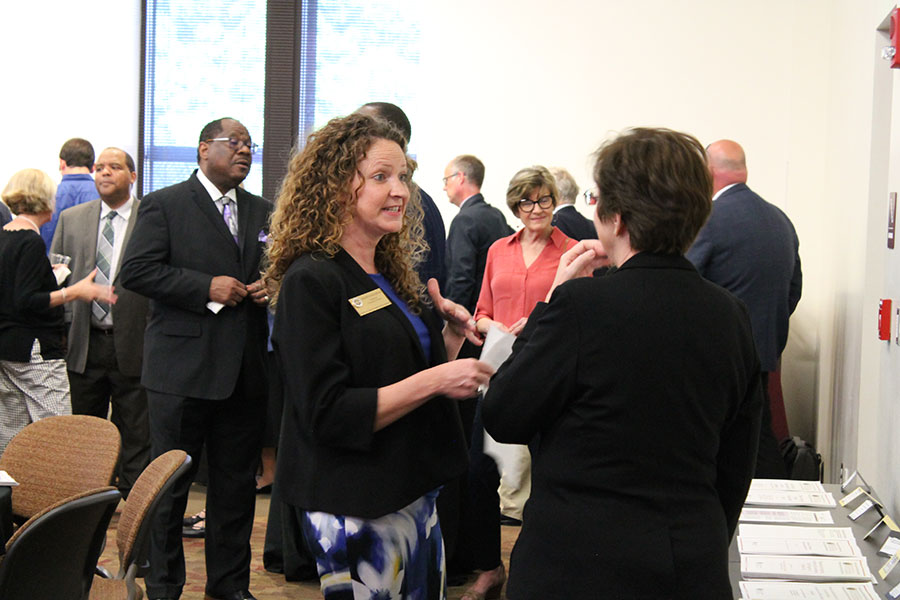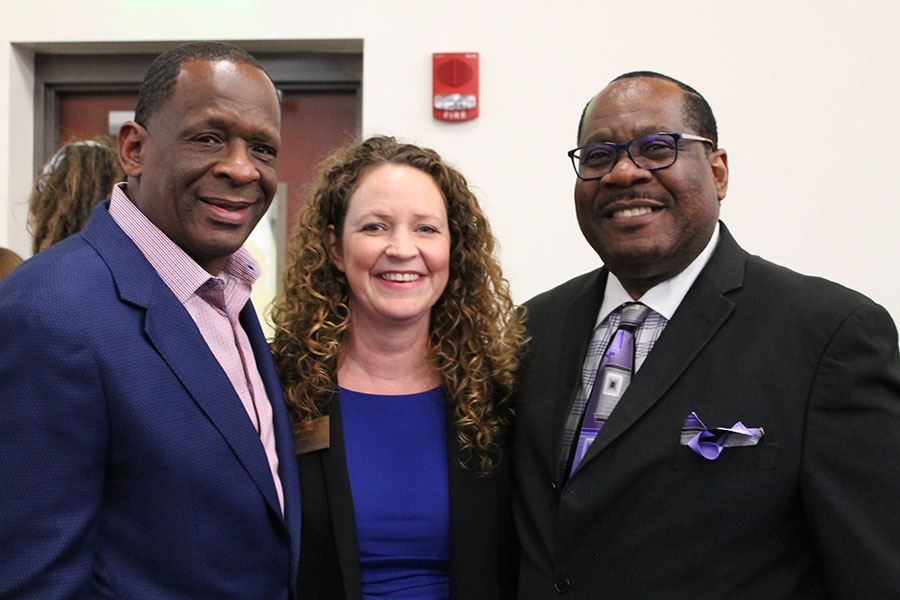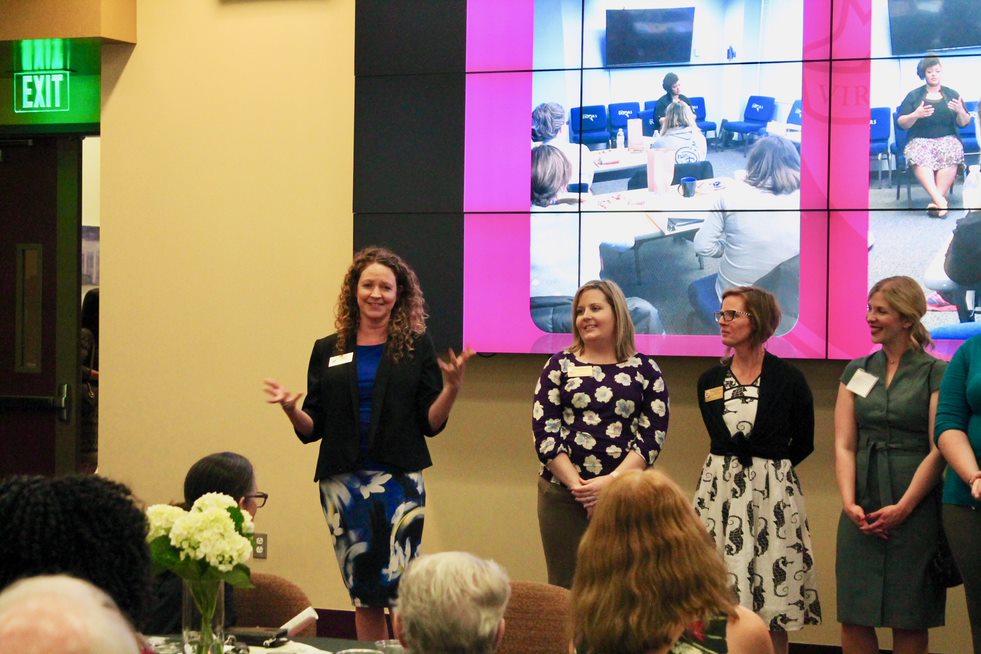
The Florida State University College of Social Work celebrated its new research entity, the Institute for Justice Research and Development at the Augustus B. Turnbull III Florida State Conference Center Thursday, April 18.
More than 100 people gathered to learn about the newest multidisciplinary research institute to find a home at FSU. The institute’s mission is to advance science, policy and practice to improve the well-being of individuals, families and communities impacted by the criminal justice system.
“We currently have millions of people incarcerated in jails and prisons in the United States,” said Carrie Pettus-Davis, founder and executive director of IJRD. “Right now, we are at a unique moment in history where, as a country, we have the moral will, the fiscal will and the political will to identify data-driven solutions to reduce the number of people who come into the criminal justice system every year and to ensure our communities are healthier and safer because we have better prepared individuals re-entering our communities to be successful.”
FSU College of Social Work Dean Jim Clark introduced Pettus-Davis and spoke about her passion to alleviate human suffering.
“Carrie’s 20 years of experience at the intersection of social work and criminal justice has prepared her to build and run a groundbreaking research institute like IJRD,” Clark said.
Unlike traditional academic research centers, the institute uses a trans-sector approach dedicated to bridging the 17-year implementation gap between scientific discovery and changes to policy and practice. By sharing study results in real time, the institute is radically revisioning the way academic research is conducted and released.
The research will identify effective ways to partner with prosecutors, public defenders and crisis response teams to divert individuals away from conviction and incarceration and toward supporters who promote well-being. The research also will explore the effectiveness of innovative programs offered inside jails and prisons and how to catalyze success for individuals as they return to their homes and communities.
The goals of these programs are to reduce the use of incarceration, help individuals who are suffering and maximize the health and safety of our communities.
“If we want our research to alleviate human suffering, to ameliorate disparities and to change conventional criminal justice outcomes, we simply don’t have 17 years to wait,” Pettus-Davis said.
Secretary of the Florida Department of Corrections Mark Inch headlined the event. He spoke about the recent passage of the First Step Act and how the criminal justice system should take a holistic approach to retribution, incapacitation, and deterrence, with meaningful rehabilitation and restoration of the nearly 12,000 individuals released from prisons each week across our nation.
“IJRD is an exciting new force in making meaningful change in our Florida communities,” Inch said.
FSU has a long tradition of conducting rigorous real-world research in criminal justice said Gary Ostrander, the Vice President for Research at FSU.
“The addition of this institute deepens existing expertise on criminal justice issues and creates an ideal environment for multi-disciplinary collaborative scholarship,” Ostrander said.
The goal of the IJRD is to create data-driven solutions to solve urgent social issues.
“The issues facing our current criminal justice system are among the most intractable issues of our time,” Pettus-Davis said. “IJRD is focused on finding solutions and helping individuals thrive while maximizing both public health and public safety.”
Learn more about the innovative work being done at IJRD here.





